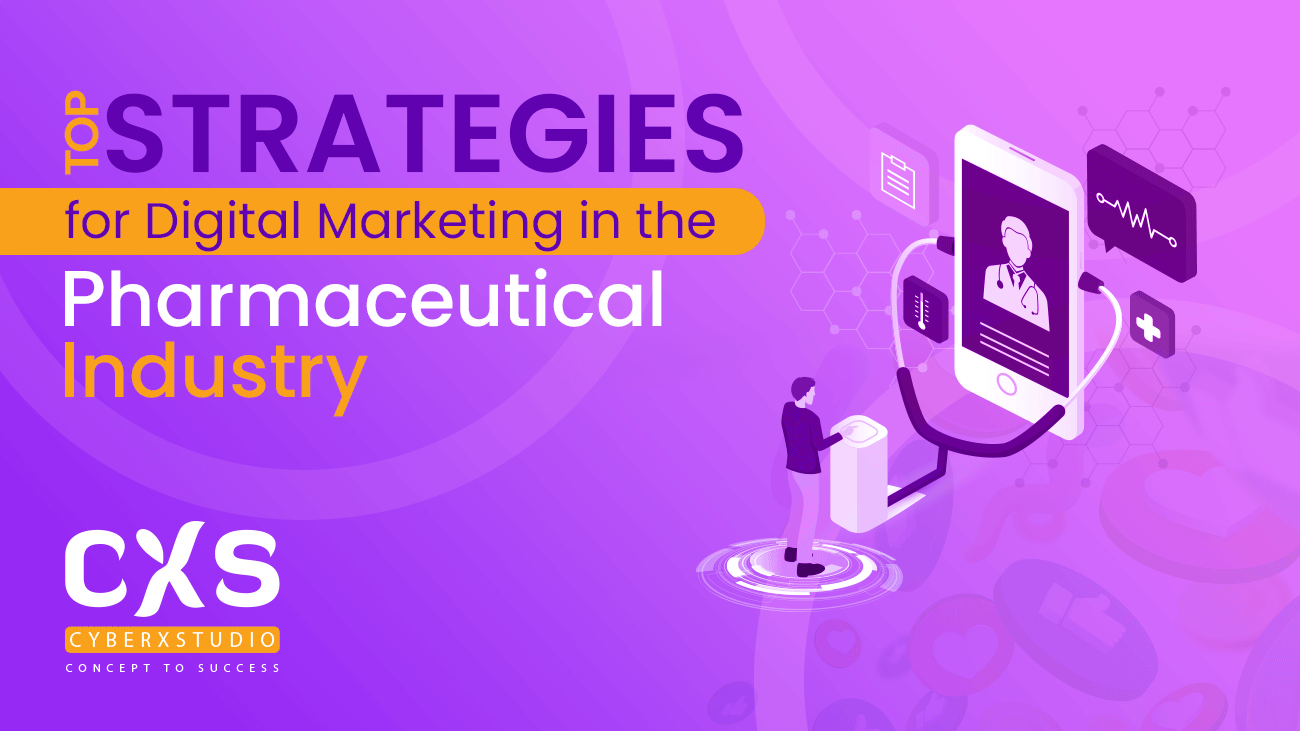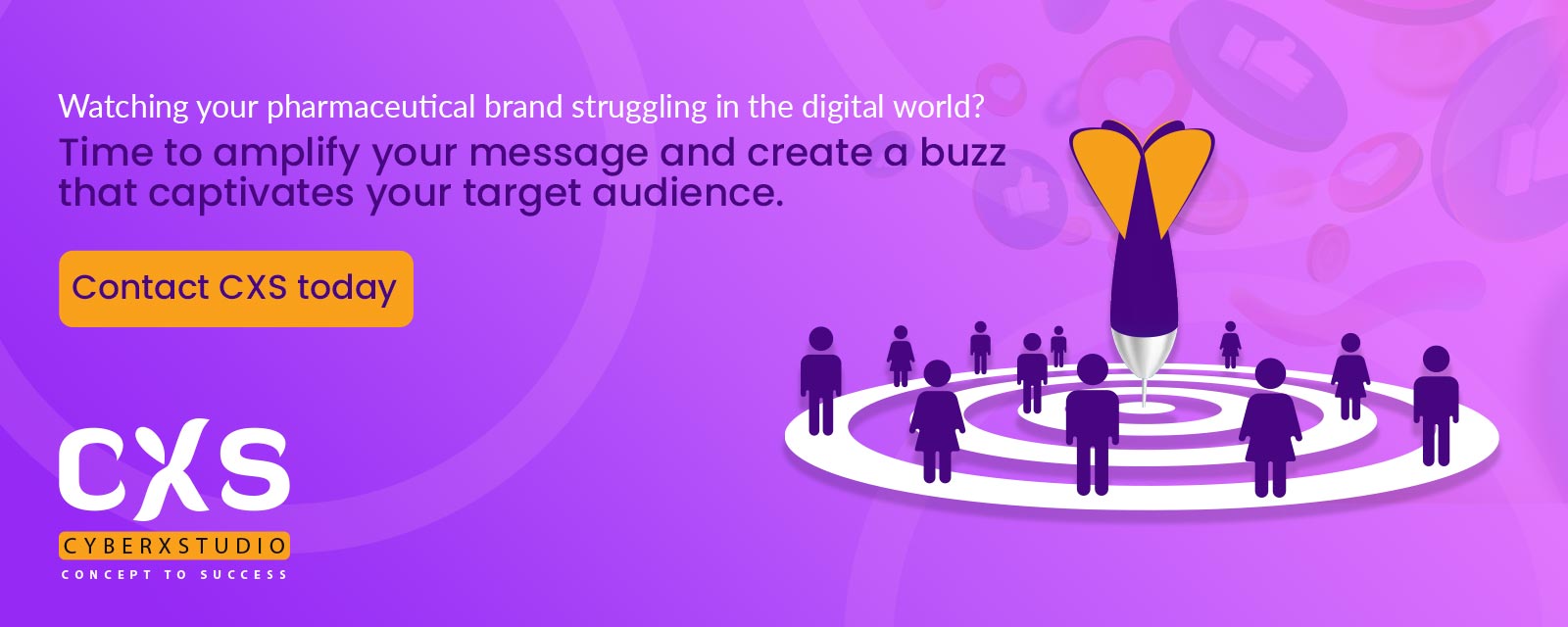In today’s digital age, industries across the board are moving to digital marketing strategies to reach and engage their target audience. The pharmaceutical industry is no exception. Digital marketing in the pharmaceutical industry has transformed the way companies communicate with patients, healthcare professionals, and clinical trial participants. With the rapidly increasing use of digital tools and platforms, pharmaceutical companies can now expand their reach, improve patient education, and collect real-time data to enhance decision-making.
This blog will explore the benefits of digital marketing in the pharmaceutical industry, discuss the different digital marketing strategies utilized by pharmaceutical companies, and examine the impact of digital marketing on patient care and clinical trials.We’ll also think about potential developments in pharmaceutical business digital marketing and regulatory issues.. Let’s get started!
Ultimate Benefits of Digital Marketing in the Pharmaceutical Industry
The scope of digital marketing in pharmaceuticals is rapidly expanding, and it’s transforming the way pharmaceutical companies interact with their target audience. Digital marketing strategies have proven to be effective in expanding reach and engagement with patients and healthcare professionals.
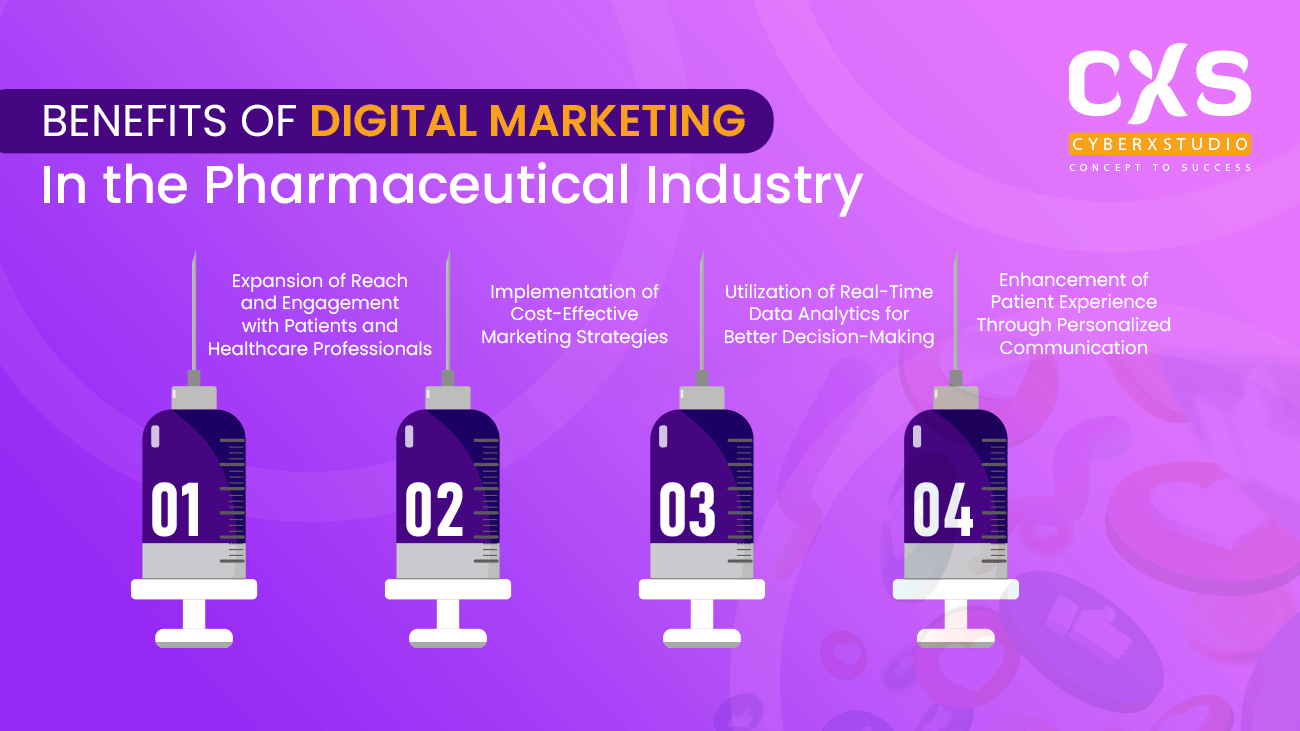
In this section, we shall delve deeper into the major benefits of digital marketing in the pharmaceutical industry. Understanding these benefits can help pharmaceutical companies leverage digital marketing to create effective marketing campaigns, build brand loyalty, and achieve their business goals.
Expansion of Reach and Engagement With Patients and Healthcare Professionals
One of the most significant advantages of digital marketing in the pharmaceutical industry is the expansion of reach and engagement with patients and healthcare professionals. Digital marketing enables companies to communicate with patients in real time through various channels, including social media, email, and mobile apps.
By engaging with patients online, pharmaceutical companies can build brand awareness and loyalty, educate patients about their products, and provide personalized support to patients.
Implementation of Cost-Effective Marketing Strategies
Digital marketing in the pharmaceutical industry is also cost-effective. Print advertisements and TV commercials are two examples of traditional marketing tactics that might be costly and have a small audience. Digital marketing, on the other hand, gives businesses the ability to precisely target particular demographics, cutting down on marketing expenses and increasing ROI.Utilization of Real-Time Data Analytics for Better Decision-Making
Real-time data analytics collection is a key advantage of digital marketing in the pharmaceutical sector. With the use of digital platforms, which can monitor patient interaction with online information through actions like clicks and shares, marketing efforts may be evaluated for their efficacy.This data can be analyzed to improve decision-making, refine marketing strategies, and tailor messaging to specific audiences.
Enhancement of Patient Experience Through Personalized Communication
Digital marketing in the pharmaceutical industry can also enhance the patient experience through personalized communication. By leveraging digital tools such as chatbots and mobile apps, companies can provide patients with customized support and information.
This approach helps patients feel valued and supported, leading to increased engagement and loyalty. Personalized communication can also help patients with medication adherence, reducing the risk of adverse events and hospitalizations.
Read our recent blog on Digital Marketing tricks and Tips to boost a small business for more awareness.
Digital Marketing Strategies for Pharmaceutical Companies
In today’s digital age, implementing effective digital marketing strategies is essential for pharmaceutical companies to establish a strong brand presence, reach out to patients, and boost revenue.
In this section, we will dive into the world of pharma brand strategy and explore the most effective digital marketing tactics that pharmaceutical companies can use to connect instantly with their target audience and drive sales.
Search Engine Optimization (SEO) For Pharmaceutical Companies
Search Engine Optimization (SEO) is optimizing a website to get it to rank higher on search engine result pages (SERPs). For pharmaceutical companies, SEO is essential as it helps them increase their visibility online and drive organic traffic to their website.
SEO involves keyword research, on-page optimization, and off-page optimization. By optimizing their website for search engines, pharmaceutical companies can improve their online presence and attract potential patients to their websites.
Social Media Marketing for Pharmaceutical Companies
Social media marketing (SMM) is a powerful tool for pharmaceutical companies to connect with their target audience. Popular Social media platforms such as Twitter, Linkedin, Facebook, and Instagram can help companies build brand awareness, engage with patients, and promote their products.
Social media marketing involves creating engaging content, building a following, and leveraging social media advertising to reach a broader audience. By implementing an effective social media marketing strategy, pharmaceutical companies can improve their online presence and build brand loyalty.
Pay-Per-Click (PPC) Advertising for Pharmaceutical Companies
Pay-Per-Click (PPC) advertising is a form of digital advertising where companies pay a fee each time a visitor clicks on one of their ads. For pharmaceutical companies, PPC advertising can be an effective way to reach your potential audience and drive conversions.
You can conveniently place PPC ads on search engines, social media platforms, and other websites. By targeting specific keywords and demographics, pharmaceutical companies can ensure their ads are seen by the right audience.
Email Marketing for Pharmaceutical Companies
Email marketing is a cost-effective way for pharmaceutical companies to communicate with patients and healthcare professionals. Email marketing involves sending targeted messages to a list of subscribers, which can include product information, educational resources, and promotional offers.
By providing valuable content to their subscribers, pharmaceutical companies can build trust and loyalty, resulting in increased sales and patient satisfaction.
Content Marketing for Pharmaceutical Companies
Content marketing is generating and distributing valuable content to attract and engage a specific target audience. For pharmaceutical companies, content marketing can involve creating informative blog posts, videos, infographics, and other types of content that provide value to patients and healthcare professionals.
By providing helpful and educational content, pharmaceutical companies can establish themselves as impactful thought leaders in their industry, build brand awareness, and increase patient engagement.
Related Some Specular Ways of Achieving Your Digital Marketing Strategy Goals in 2023
Legal Considerations for Digital Marketing in the Pharmaceutical Industry
Companies need to be mindful of the legal ramifications of using digital marketing as it becomes increasingly common in the pharmaceutical sector. Important laws that are not followed might result in expensive fines and a ruined reputation.
We will examine the legal implications of digital marketing in the pharmaceutical sector in this section.
As digital marketing becomes more prevalent in the pharmaceutical industry, it’s important for companies to be aware of the legal factors that come along with it. Failure to comply with important regulations can result in hefty fines and a damaged reputation.
In this section, we will explore the legal considerations for digital marketing in the pharmaceutical industry.
FDA Regulations for Digital Marketing in the Pharmaceutical Industry
The FDA has specific regulations in place for pharmaceutical companies when it comes to digital marketing. Companies must ensure that their digital marketing efforts, including social media and online advertising, adhere to the same standards as traditional advertising.
The FDA requires that all advertising and promotional materials, including digital content, clearly depict a product’s advantages and disadvantages and that all claims be backed by scientific research.Compliance With HIPAA and Data Privacy Regulations
Pharmaceutical companies must comply with the Health Insurance Portability and Accountability Act (HIPAA) and other data privacy regulations when collecting and storing patient data for digital marketing purposes.
Companies must ensure that they are obtaining proper consent from patients before collecting their personal information and that they are storing and using the data in a secure and ethical manner.
Adverse Event Reporting Requirements for Pharmaceutical Companies
Pharmaceutical companies are required to report any adverse events related to their products, including those that occur as a result of digital marketing efforts. Companies must have a system in place to monitor and report adverse events and must be prepared to take corrective action if necessary.
Failure to report adverse events can result in legal and financial consequences for the company.
Influence of Digital Marketing on Patient Care
The evolution of digital marketing has created significant opportunities for pharmaceutical sales and marketing, especially in terms of improving patient care. With the help of digital marketing strategies, pharmaceutical companies can better engage patients, educate them about their medications, and ultimately improve their overall health outcomes.
In this section, we will explore the different ways in which digital marketing has influenced patient care and how it has contributed to the growth of pharmaceutical sales and marketing.
Advancement of Patient Education and Medication Adherence
Digital marketing has created a wealth of opportunities for pharmaceutical companies to educate patients on various health conditions, as well as promote medication adherence. Through the use of digital channels such as social media, email marketing, and mobile apps, pharmaceutical companies can provide patients with important information about their health conditions, treatment options, and medication dosages.
This increased patient education helps patients make informed decisions about their health and treatment, leading to better health outcomes.
Amplification of Patient Engagement and Empowerment
Digital marketing has also played a significant role in amplifying patient engagement and empowerment. With the help of digital tools, pharmaceutical companies can create patient communities, host webinars, and offer interactive educational resources, providing patients with a platform to connect widely and share their experiences.
This engagement and empowerment help patients take control of their health, leading to better health outcomes.
Upgrading of Patient Outcomes and Health Results
Perhaps the most significant impact of digital marketing on patient care is its ability to upgrade patient outcomes and health results. By utilizing digital tools to collect patient data and track patient progress, pharmaceutical companies can gain insights into patient behavior and preferences, which they can then use to personalize treatment plans and improve health outcomes.
Additionally, digital marketing can help pharmaceutical companies gather real-world data and improve clinical trials, leading to better treatments and, ultimately, better patient outcomes.
Challenges in Implementing Digital Marketing in the Pharmaceutical Industry
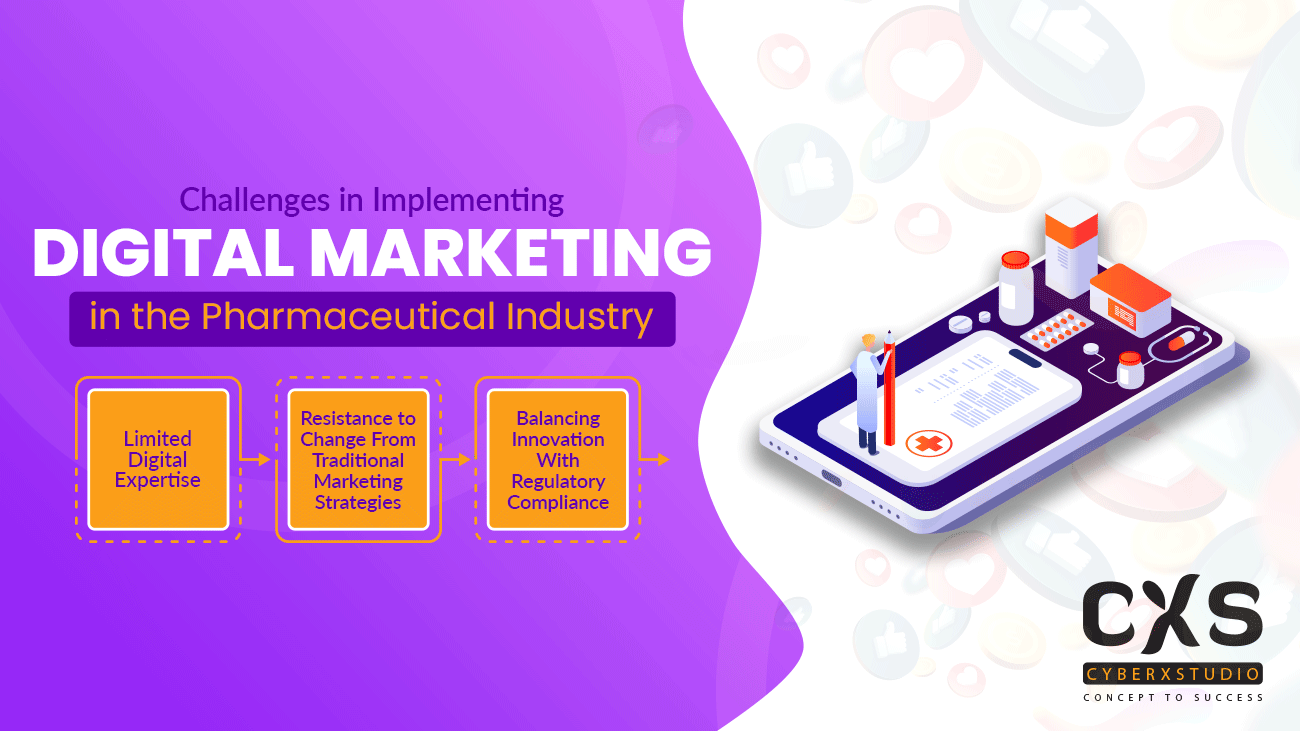
Despite the numerous benefits of digital marketing, there are still several challenges that pharmaceutical companies face in implementing these strategies. Here we will examine some of the major challenges of digital marketing implementation in the pharmaceutical industry.
Limited Digital Marketing Expertise Within the Pharmaceutical Industry
One of the significant challenges in implementing digital marketing in the pharmaceutical industry is the limited expertise and knowledge within the industry. Most pharmaceutical companies lack the in-house expertise and resources needed to design, execute, and optimize digital marketing campaigns effectively.
As a result, these companies may struggle to implement digital marketing campaigns that are effective in engaging and educating their target audience.
Resistance to Change From Traditional Marketing Strategies
Another significant challenge of implementing digital marketing in the pharmaceutical industry is resistance to change from traditional marketing strategies. Some pharmaceutical companies still rely on traditional marketing strategies such as print advertisements and direct mail campaigns, which may not be as effective as digital marketing strategies.
Despite the potential benefits of digital marketing, some companies may be hesitant to invest in digital marketing due to a lack of understanding or trust in these new strategies.
Balancing Innovation With Regulatory Compliance
Pharmaceutical companies must balance innovation with regulatory compliance when implementing digital marketing strategies. The regulatory environment for pharmaceutical marketing is strict, and companies must ensure that their marketing strategies comply with FDA regulations.
This can be challenging, as digital marketing strategies are continuously evolving, and regulatory agencies struggle to keep up with these changes. As a result, pharmaceutical companies must strike a balance between innovating their marketing strategies and ensuring regulatory compliance.
Read our latest blog for more awareness Importance of Digital Marketing for Business Success in 2023
Future Trends in Digital Marketing for the Pharmaceutical Industry
The pharmaceutical industry is continuously evolving, and digital marketing is no exception. As pharmaceutical advertising companies strive to stay ahead of the competition, they are constantly looking for fresh, creative methods to engage with their target market. Three significant future developments in digital marketing for the pharmaceutical business will be discussed in this section.
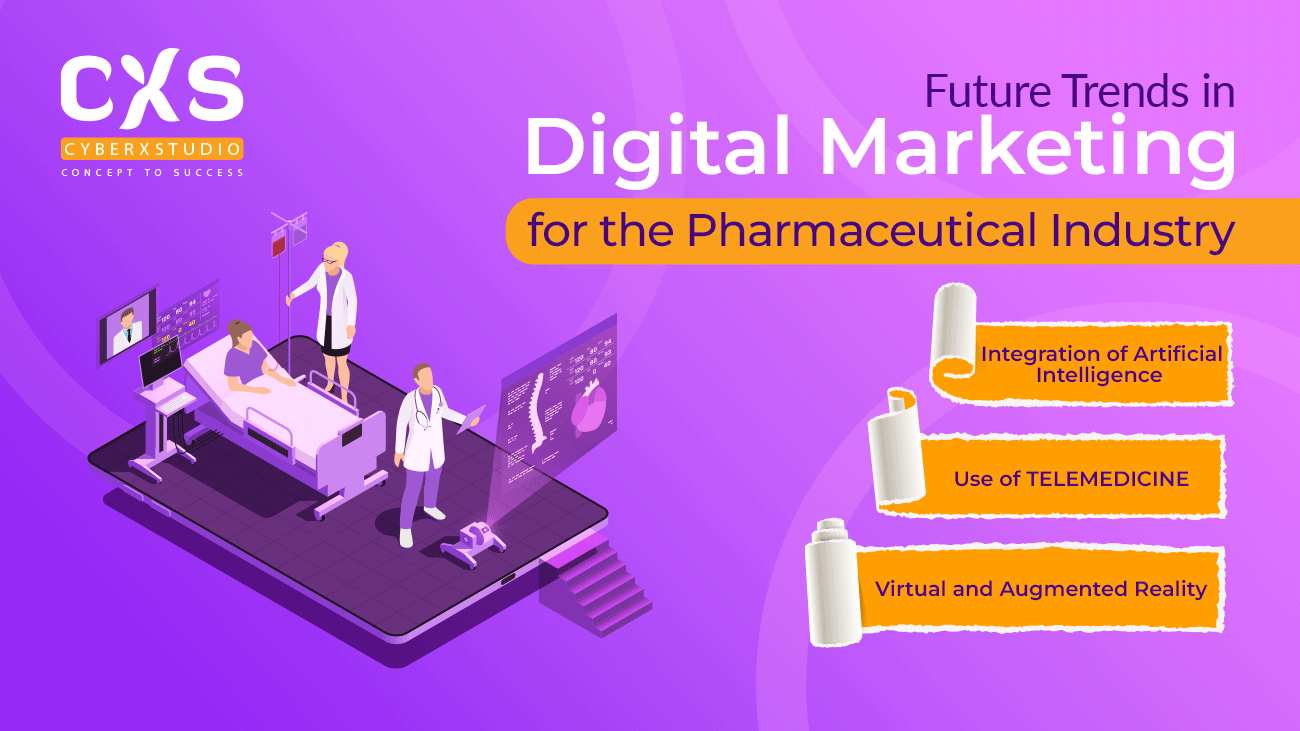
The integration of Artificial Intelligence (AI) has the potential to revolutionize the way pharmaceutical companies approach digital marketing. AI-powered tools can help companies analyze data, personalize messaging, and automate processes, leading to better decision-making and improved patient outcomes. AI can also aid in identifying patient groups and predicting their behavior, enabling companies to tailor their marketing strategies to specific patient needs.
Telemedicine is another trend that is transforming the healthcare industry and, consequently, digital marketing for pharmaceutical companies. With the rise of telemedicine, patients can access healthcare services remotely, leading to increased demand for digital health solutions. This trend presents a new opportunity for pharmaceutical companies to integrate their products and services into virtual care environments, driving engagement and improving patient outcomes.
Finally, virtual and augmented reality (VR/AR) is gaining traction in patient education and engagement, and it has the potential to change how pharmaceutical companies approach marketing. With VR/AR technology, patients can visualize the effects of medication and treatment, leading to better understanding and adherence. As such, VR/AR could be a game-changer for pharmaceutical companies seeking to improve patient outcomes and engagement through digital marketing.
Conclusion
Learning how to use digital marketing tools in pharmaceuticals has revolutionized the way companies interact with their customers. It has provided a more targeted and cost-effective approach to marketing, allowing pharmaceutical companies to reach a wider audience and provide valuable and required information to their customers. With the increasing importance of digital communication, companies need to stay up-to-date with the latest digital marketing tools and techniques to stay competitive in the market.
By incorporating digital marketing strategies into their overall marketing plan, pharmaceutical companies can enhance their brand reputation, increase sales, and provide better customer experiences. Thus, the introduction to digital marketing in the pharmaceutical industry has been a game-changer, and it is essential for companies to utilize these tools effectively to stay ahead of the curve.
Contact CXS as we offer marketing training to assist you in taking the next stages toward a well-planned marketing strategy.
FAQs
Digital marketing in the pharmaceutical industry refers to the use of numerous digital channels and tools, such as social media, email, search engines, and websites, to promote pharmaceutical products and services to target customers.
The benefits of using digital marketing in the pharmaceutical industry include reaching a wider audience, providing personalized communication to customers, increasing brand awareness, improving customer engagement, and generating leads
The most effective digital marketing strategies for the pharmaceutical industry vary based on the company and product but can include social media advertising, email marketing, content marketing, and even search engine optimization. It is quite important for companies to continually evaluate and adjust their strategies based on the changing needs of their target audience.
Yes, there are strict regulations in place that must be followed when using digital marketing in the pharmaceutical industry. These regulations vary by country and can include restrictions on advertising, labeling, and promotion of pharmaceutical products.

Rabia Abbasi
Director Digital Marketing at CyberXStudio
Rabia Abbasi is an exceptional leader at the forefront of digital marketing operations. With over a decade of experience in a diverse range of areas, she leads the way with a comprehensive and forward-looking approach to digital marketing. Rabia’s passion for staying ahead of the curve in the ever-evolving digital landscape is evident in her ability to create impactful strategies that drive results.

